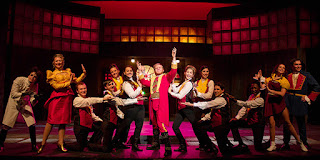 |
| Image source: journeyoftheword.wordpress.com |
Villains are often construed as unimportant, flat characters but that shouldn't be the case. There is more to an antagonist than just wanting to conquer the world and do bad things. Not everyone can appreciate a well-portrayed villain, but here are some tips on the art of villainy:
Understand the character's story
In every role, it is essential to understand a character's backstory. Knowing where the character is coming from and why he acts the way he does can help in the acting process. This is even more important when playing a villain because it's the villain who usually suffers the most.
Watch how villains act in other plays and/or movies
A good way to learn how to be a villain is to watch one in action. Whether it's a movie or play, you can learn a lot by observing the mannerisms, quirks, and psyche of any villain. From learning how to do an authentic evil laugh or how to look menacing without saying a word – there is a lot to be gained through research and practice.
| Image source: lifehack.org |
Have a redeeming quality
Taking over the world and destroying mankind are not, by any standards, noble ambitions. However, there should always be at least one redeeming quality about the villain to make him or her more realistic. Villains should be diverse characters: intelligent, charismatic, and even vulnerable.
Hello there! I am Joshua B. Eaves and I love Broadway shows and the Blue Man Group. Subscribe to this for more about theater, acting and other related articles.











